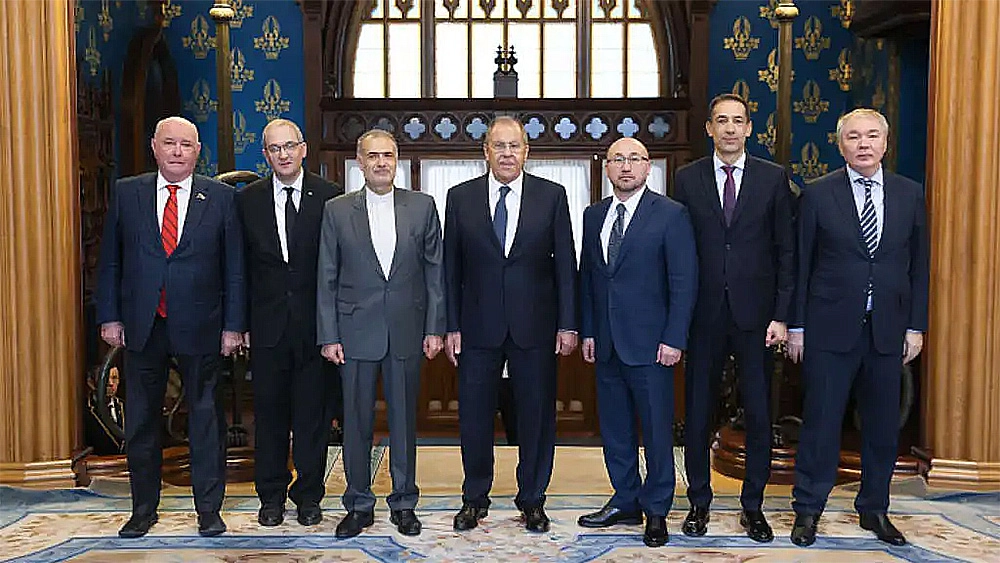2025/11/10 Russia, Caspian States Discuss INSTC, multilateral development: economic and development analysis
The Russian Foreign Minister Sergey Lavrov held his annual meeting in October with the heads of the four diplomatic missions of the Caspian states. In attendance were Azerbaijani Ambassador Rahman Mustafayev, Iranian Ambassador Kazem Jalali, Kazakh Ambassador Dauren Abayev, and Turkmen Ambassador Esen Aidogdyev.
The meeting was also attended by G.B. Karasin, Chairman of the Federation Council Committee on International Affairs, and L.I. Kalashnikov, Chairman of the State Duma Committee on CIS Affairs and Eurasian Integration.
Discussions included a wide range of issues related to multifaceted cooperation in the Caspian region and deepening interaction within the Caspian framework.
On the same day, a trilateral meeting on cooperation in the fields of transport, energy, and customs was held in Baku. The meeting was attended by Russian Deputy Prime Minister Alexei Overchuk, Azerbaijani Deputy Prime Minister Shahin Mustafayev, and Iranian Minister of Roads and Urban Development Farzaneh Sadeg. As a result, Russia, Azerbaijan, and Iran agreed to set up a working group to develop a plan of action for the development of the North-South international transport corridor by the beginning of next year.
That includes the need to take measures to increase the volume of traffic on the North-South international transport corridor to 15 million tons and ensure continuous growth in freight flows. An agreement was reached to create a working group to prepare an action plan for the implementation of these measures within three months. For comparison, 15 million tons is equivalent to 700,000 to 1 million TEU, or approximately 20% of the total annual TEU transshipment volume in Russia.
The participants confirmed “the importance of continuing efforts to develop the region’s transit potential,” as well as “the significance of accelerating projects aimed at developing and diversifying transport communications and, in this regard, the synchronized implementation of work to expand infrastructure along the INSTC in the relevant territories of the countries.”
An agreement was also reached to establish a special Working Group on Road Transport, consisting of the customs, border, and transport authorities of the three countries.
The signing of the regulation on the trilateral working group on customs cooperation to facilitate transit transport between Azerbaijan, Iran, and Russia. The need to simplify border crossing procedures and digitize transport, border, and customs operations throughout the corridor was emphasized.
An agreement was also reached to continue discussions at the technical level on a project to connect the electrical grids of Azerbaijan, Iran, and Russia, further assisting railway development.
The INSTC links northern Europe with the Gulf and Indian Ocean states via Russia, the Caucasus, and Central Asia. The multimodal corridor was created under an agreement signed by Russia, Iran, and India in 2000, with the number of participants now at 12. The corridor has three main routes:
Western Route: Along the west coast of the Caspian Sea, also servicing markets in Georgia, Armenia and Turkiye with additional rail connectivity to the Black Sea and the European Union;
Eastern Route: Along the east coast of the Caspian Sea, reaching into Central Asia with onward connectivity to China via Kazakhstan;
Trans-Caspian Route: Extending north-south across the Caspian Sea, using Iran as an entry point for further shipments to the Middle East, Pakistan, India, and Southeast Asia.







